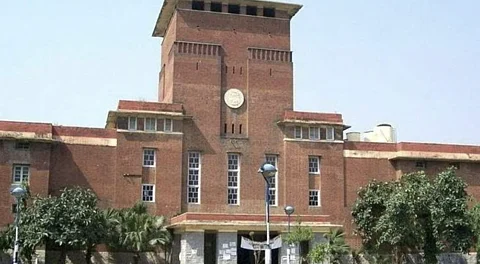

The Lyngdoh Committee rules, which forbid defacing public property and using printed posters during student union elections, have not been fully understood by administrators of Delhi University (DU) and its institutions, according to the Delhi High Court (HC).
The Delhi University and college administrators, according to the court, have not followed the recommendations of the Lyngdoh Committee, PTI reports.
The observations were made in an order yesterday, September 26, by a bench consisting of Chief Justice-designate Manmohan and Justice Tushar Rao Gedela and uploaded today.
The order halted the counting of votes in the Delhi University Students Union (DUSU) elections until all signs of defacement, such as posters, hoarding, and graffiti, were removed and public property was restored.
"It also seems to this court that the senior management of Delhi University and colleges of Delhi University have been remiss in appreciating the true import and significance of Lyngdoh Committee guidelines accepted by this court. Further, the officials of Delhi University and colleges have neglected to enforce the Lyngdoh Committee guidelines and perform their duties," the bench said.
The court stated that it was of the prima facie opinion that there has been extensive use of money and muscular power in DUSU and college elections, which is contradictory to the Lyngdoh Committee guidelines, after reviewing the videos and photos submitted on record.
"This court is of the opinion that elections, which are supposed to be a festival of democracy, have been converted into a festival of money laundering and defacement of public property. In some respects, it reflects the failure of the education system," the bench said.
According to the Lyngdoh Committee recommendations for student union elections, which have been adopted by the Supreme Court and the High Court in 2007, the maximum allowable expenditure per candidate is Rs 5,000, and any exceeding expenditure will result in the candidate's election being invalidated.
The guidelines also prevent candidates from using printed posters, printed pamphlets, or any other printed material for canvassing. Instead, they must use hand-made posters.
Further, candidates are prevented from “defacing” the campus property without prior written permission from the authorities, and all candidates are liable for punishment for any defacement of college/university property, the guidelines state.
